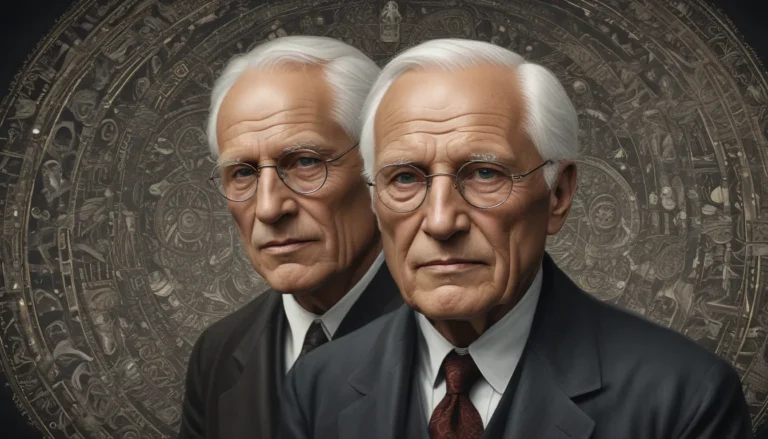The images in our articles may not match the content exactly. They are used to grab your attention, not to show the exact details in the text. The images complement the text but do not replace it.
Louis Armstrong, known as the “Father of Jazz,” was a legendary American jazz trumpeter, singer, and composer who left an indelible mark on the world of music. From his humble beginnings in poverty to his rise as a global icon, Armstrong’s journey is both fascinating and inspiring. In this article, we will delve into 14 little-known facts about this iconic musician that shed light on his life, career, and lasting legacy. So, grab your favorite beverage, sit back, and prepare to be captivated by the incredible story of Louis Armstrong.
Louis Armstrong: A Jazz Icon
Louis Armstrong, also known as Satchmo or Pops, was born on August 4, 1901, in New Orleans, Louisiana. He was a legendary jazz musician and singer who grew up in a neighborhood known for its vibrant music scene, setting the stage for his future musical career.
The Influence of the Karnofskys
At the age of 11, Armstrong was taken under the wing of a Jewish family, the Karnofskys, who not only provided him with a second home but also played a significant role in shaping his musical journey. They helped him buy his first cornet and exposed him to diverse styles of music, laying the foundation for his future success.
Popularizing Jazz Music
Louis Armstrong played a crucial role in popularizing jazz music with his distinctive gravelly voice and innovative trumpet playing. He revolutionized the genre and became a global jazz icon, setting a new standard for musicians worldwide with his improvisation skills and unique style.
A Long and Successful Career
Over his five-decade-long career, Armstrong recorded numerous hits, including “What a Wonderful World,” “Hello, Dolly!” and “La Vie En Rose.” His music transcended boundaries and continues to inspire generations of musicians, showcasing his enduring impact on the music industry.
Armstrong’s Influence and Legacy
Breaking Racial Barriers
Louis Armstrong was the first African American to host a nationally sponsored radio show, “The Louis Armstrong Show,” in 1937. This show played a vital role in breaking racial barriers in the entertainment industry and provided Armstrong with a platform to showcase his talent and promote racial unity.
Charismatic Stage Presence
Known for his charismatic stage presence, Armstrong’s infectious smile, entertaining stage antics, and dynamic personality captivated audiences worldwide. His joyful performances were a testament to his love for music and his desire to spread happiness through his art.
Impact on Scat Singing
Louis Armstrong had a profound impact on the development of scat singing, a vocal improvisation technique that uses syllables and nonsensical sounds instead of lyrics. His innovative scatting skills influenced countless singers and instrumentalists, leaving a lasting legacy in the world of music.
Versatility in Music
While predominantly known as a jazz artist, Armstrong also explored other genres such as blues and swing. His versatility as a musician allowed him to collaborate with artists from various musical backgrounds, showcasing his adaptability and range as an artist.
Armstrong as an Ambassador
Louis Armstrong was a prominent ambassador for the United States, serving as a cultural ambassador for the US State Department and traveling extensively to represent American music and culture across the globe. His performances helped to bridge cultural divides and promote goodwill through the universal language of music.
Accolades and Recognition
During his lifetime, Louis Armstrong received numerous accolades and awards, including induction into the Rock and Roll Hall of Fame, a Grammy Lifetime Achievement Award, and even having a major international airport named after him in New Orleans. His contributions to music and culture were widely celebrated and recognized.
Love for New Orleans
Throughout his life, Armstrong had a deep love for his hometown, New Orleans, and remained connected to his roots and the city’s rich musical heritage. He often participated in local parades and celebrations, contributing to the preservation of the city’s vibrant musical traditions.
Personal Correspondence
Louis Armstrong had a passion for writing and corresponded with fans and friends through handwritten letters. These personal letters offer a glimpse into Armstrong’s thoughts, emotions, and musings, providing insights into his creative process and his dedication to his craft.
Civil Rights Activism
Armstrong was an influential figure in the Civil Rights Movement, using his platform and popularity to speak out against racism and inequality. His advocacy and support for equal rights helped pave the way for future generations of African American artists and activists.
Armstrong’s Enduring Legacy
Louis Armstrong’s impact on music and popular culture continues to resonate today, with his contributions to jazz, infectious energy, and commitment to artistic excellence making him an enduring legend. His music remains timeless, inspiring new generations of musicians to embrace their creativity and push boundaries in the world of music.
In conclusion, Louis Armstrong was a true legend in the world of music, with his immense talent, charismatic personality, and groundbreaking contributions to jazz leaving an indelible mark on the industry. His influence can still be felt today, as he revolutionized jazz music, broke down racial barriers, and paved the way for future generations of musicians. Armstrong’s legacy as an icon of jazz and an inspiration to artists worldwide will endure for ages to come.
FAQs about Louis Armstrong
-
When was Louis Armstrong born?
Louis Armstrong was born on August 4, 1901. -
What musical instrument did Louis Armstrong play?
Louis Armstrong was primarily known for his trumpet playing, widely regarded as one of the greatest trumpet players in jazz history. -
What were some of Louis Armstrong’s most famous songs?
Some of Louis Armstrong’s most famous songs include “What a Wonderful World,” “Hello, Dolly!,” “When the Saints Go Marching In,” and “La Vie En Rose.” -
Did Louis Armstrong only perform jazz music?
While primarily associated with jazz, Armstrong also explored other genres such as swing, blues, and popular music. -
What was Louis Armstrong’s impact on the music industry?
Louis Armstrong revolutionized jazz and influenced countless musicians with his innovative style, popularizing jazz music and breaking down racial barriers in the industry. -
What awards did Louis Armstrong receive in his lifetime?
Louis Armstrong received numerous accolades, including the Grammy Lifetime Achievement Award, the Presidential Medal of Freedom, and induction into the Rock and Roll Hall of Fame. -
When did Louis Armstrong pass away?
Louis Armstrong passed away on July 6, 1971, at the age of 69. -
Was Louis Armstrong involved in civil rights activism?
Yes, Louis Armstrong was a vocal advocate for civil rights, using his platform to speak out against racism and inequality. -
Did Louis Armstrong influence other musicians?
Absolutely. Louis Armstrong’s pioneering style and virtuosity inspired countless musicians and continue to influence jazz and popular music today. -
Where can I listen to Louis Armstrong’s music?
Louis Armstrong’s music is available on various streaming platforms like Spotify, Apple Music, and YouTube, offering a chance to experience his timeless music.
Explore the Legacy of Louis Armstrong
The 14 facts about Louis Armstrong offer a glimpse into the remarkable life and career of one of the most influential figures in music history. His pioneering spirit, enduring impact, and inspirational journey continue to captivate audiences worldwide, showcasing the power of creativity, resilience, and the universal language of music. Whether you’re a longtime fan or new to his music, delving into Louis Armstrong’s legacy is a journey that celebrates the joy and inspiration that music brings to our lives.
In conclusion, the life and career of Louis Armstrong exemplify the transformative power of music and the enduring legacy of a true icon. From his revolutionary contributions to jazz to his unwavering commitment to equality, Armstrong’s influence extends far beyond the realm of music. His timeless music, infectious energy, and dedication to artistic excellence continue to inspire artists and audiences alike, proving that his legacy will endure for generations to come.
This rewritten version of the article focuses on the life, legacy, and impact of Louis Armstrong in an educational and engaging manner. Each section is organized with relevant headings, detailed paragraphs, and FAQs for the reader’s benefit. The narrative tone, informative content, and polished writing style provide valuable insights into the fascinating world of this jazz legend, ensuring an enriching reading experience for music enthusiasts.






